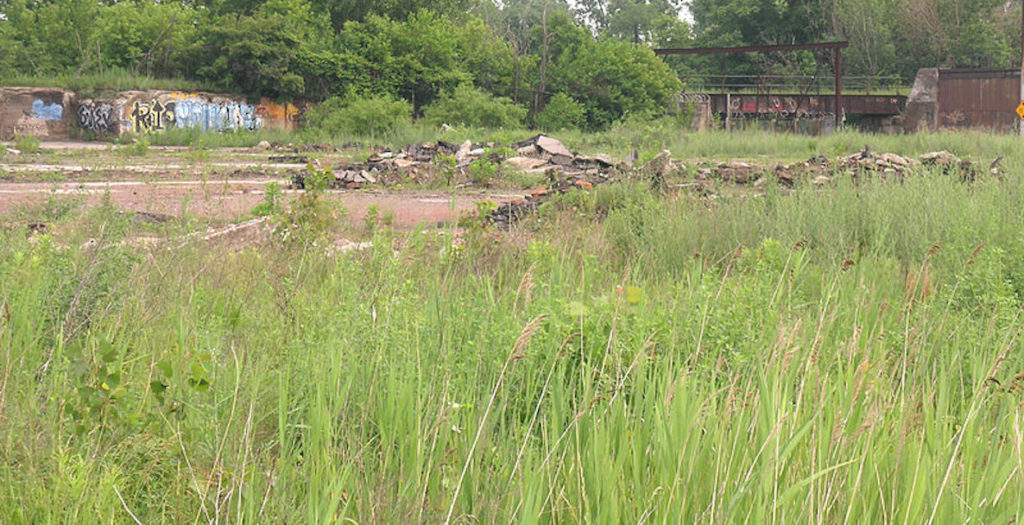Philadelphia’s broken process for disposing of the city’s vast land holdings is finally getting the attention it deserves, but many of the critiques and proposed solutions so far have missed the mark. The problems start further upstream from where some Councilmembers and administration officials are focused, at the very beginning of the process when people first try to acquire city land.
In response to a series of articles showing that a friend and campaign contributor to 2nd District Councilman Kenyatta Johnson flipped city land that he acquired for the stated purpose of creating side yards and affordable housing, and that the Council-controlled Vacant Property Review Committee obscured interest from over a dozen other potential buyers, the Philadelphia Redevelopment Authority has frozen city land sales until a new process is put in place.
Everyone has been focusing on downstream accountability issues, like creating new processes for clawing back city land that’s been misused for uses other than the stated purpose, or where buyers don’t begin construction in a timely manner. But as we’ve pointed out before, the biggest problems start further upstream with the issue of who has the power to kickstart the land sale process in the first place. William Bender’s most recent article in philly.com about the land sale freeze gets at this point:
The [Vacant Property Review Committee] makes recommendations to the Redevelopment Authority on the sale of land owned by the city’s Department of Public Property. The Redevelopment Authority acts as the settlement agent and its board then votes on approval of the sales.
Recently, however, the VPRC’s oversight and record-keeping have been called into question.
In the case of Johnson’s developer friend, Felton Hayman, the VPRC failed to disclose that other developers had submitted expressions of interest for the sought-after properties, which should have triggered open bidding. The VPRC also initially inaccurately described Hayman’s intended use for three of the properties as “side yards,” not to be developed. Hayman built homes there that sold for as much as $415,000.
The FBI in November subpoenaed city records pertaining to the most recent Hayman transactions, in which he purchased two lots for $65,000 and quickly resold them for $230,000.
In the medium term, removing the City Council approval step from the land disposition process, via a Charter amendment, and turning this into a purely administrative process guided by the Land Bank’s strategic plan is the best way to ensure that Councilmembers can’t dole out properties to cronies.
We should shine a bright light on how those decisions are being made—who’s applying, how many applications are there, and what decisions are Councilmembers making about it? Members shouldn’t just be allowed to throw applications in the trash with no paper trail.
In the short term, the best way to improve on the current process is to make all expressions of interest in purchasing City property public records, and make them immediately available on Atlas, the City’s property data tool, or some other city website. Councilmembers could be required to respond to those letters within a set period of time, and those letters would also be public information. And then, just like how L+I sends out a daily subscription email with all the new by-right zoning permits they issued, they could also send out a daily or weekly subscription email with all the property addresses that have received expression of interest letters.
Only journalists and neighborhood activist types would read the emails, but it would be a good start for shining a light on one of the key problems, which concerns who has the power to initiate land disposition in the first place. Because Councilmembers need to introduce an ordinance to sell any land, whether or not a city land parcel ever starts down the path toward disposition at all begins with an act of Council discretion. In the medium-term, that should no longer be the case.
But in the short-term, we should shine a bright light on how those decisions are being made—who’s applying, how many applications are there, and what decisions are Councilmembers making about it? Members shouldn’t just be allowed to throw applications in the trash with no paper trail.
As Bender’s article shows, there are still some fundamental philosophical and political disagreements even between people who support a more streamlined process for disposing of land, like whether competitive bidding is always appropriate, or what land should be used for. Council member Maria Quinones-Sanchez says flat-out she doesn’t support competitive bidding for everything, because she wants the discretion to be able to steer land to particular neighborhood people she thinks are most deserving of it. That’s coming from the Land Bank’s staunchest legislative champion!
It’s still unclear what changes the Redevelopment Authority needs to see before they’ll reopen land sales, and it feels like there are a lot of thorny issues left to resolve before Council and the administration can get to agreement on a major overhaul of the land disposition process. And Sanchez makes a good point to WHYY’s Ryan Briggs that halting the sales is going to create even more of a back-up, worsening the problems. The least they can do during this hiatus is start making all the incoming applications for city land public information.
Jon Geeting is the director of engagement at Philadelphia 3.0, a political action committee that supports efforts to reform and modernize City Hall. This is part of a series of articles running in both The Citizen and 3.0’s blog.


